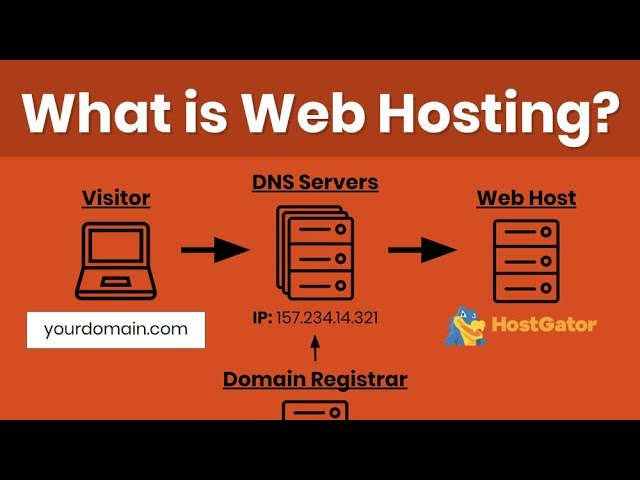Domain Registration and Web Hosting Explained
When it comes to creating a website, two essential components are domain registration and web hosting. Both play a crucial role in establishing an online presence and ensuring your website is accessible to users all over the world. In this article, we will break down these two components and explain how they work together to bring your website to life.
What is Domain Registration?
A domain name is the unique address where users can access your website. It serves as your online identity and is what users will type into their browser to reach your site. Domain registration is the process of securing this unique domain name for your website. When you register a domain, you are essentially claiming that specific address as yours, and no one else can use it as long as you renew the registration.
Domain names typically consist of two parts: the actual name (e.g., “example”) and the domain extension (e.g., “.com,” “.org,” “.net,” etc.). When choosing a domain name, it is essential to select one that reflects your brand, is easy to remember, and is relevant to your website’s content.
What is Web Hosting?
Once you have registered your domain name, the next step is to find a place to store your website’s files and data. This is where web hosting comes in. Web hosting is a service that provides the technology and server space needed to make your website accessible on the internet.
Think of web hosting as the land where you can build your virtual house (website). Without web hosting, your website would have no place to exist on the internet. Web hosting companies offer various types of hosting plans, including shared hosting, VPS hosting, dedicated hosting, and cloud hosting, each designed to meet different website needs and traffic levels.
How Do Domain Registration and Web Hosting Work Together?
Domain registration and web hosting work hand in hand to bring your website to life. After registering your domain name, you will need to connect it to your web hosting provider’s servers. This connection allows users to access your website by typing in your domain name.
During the domain registration process, you will need to input the DNS (Domain Name System) information provided by your web hosting provider. This information tells the internet where to find your website’s files and data when someone types in your domain name. Without this connection, your domain name would lead users nowhere.
Once your domain is connected to your web hosting provider, your website will be live on the internet, and users can start visiting it. Keep in mind that both domain registration and web hosting require annual renewal to keep your website accessible. If you forget to renew either, your website could go offline, and you risk losing your online presence.
Conclusion
In summary, domain registration and web hosting are two essential components of creating a website. By registering a domain name, you claim a unique address for your website, while web hosting provides the technology and server space needed to make your website accessible on the internet. Together, they work to bring your website to life and establish your online presence.
Whether you are a business owner, blogger, or entrepreneur looking to establish an online presence, understanding domain registration and web hosting is crucial. By investing in these two components, you can create a professional website that will attract users and help you achieve your online goals.
